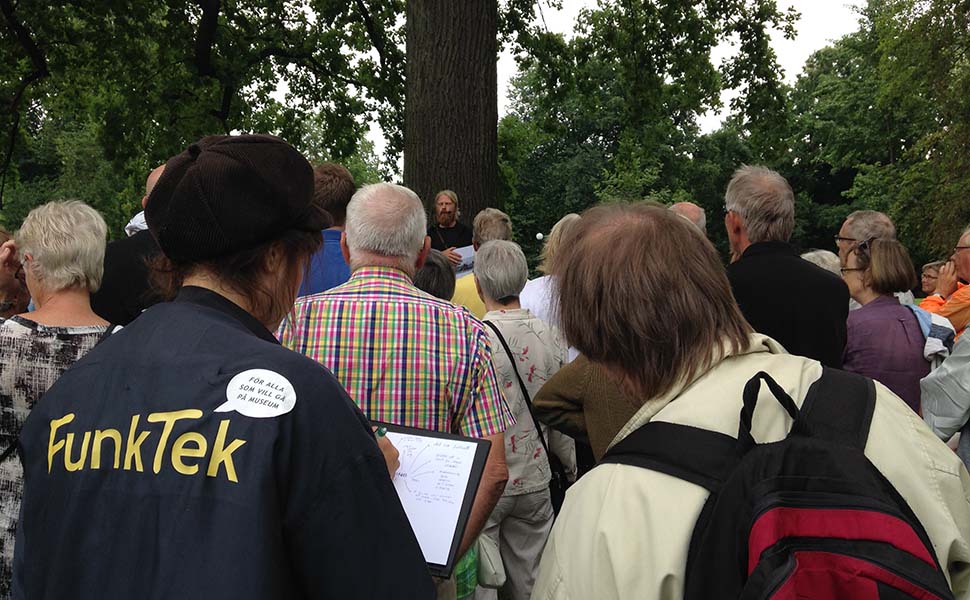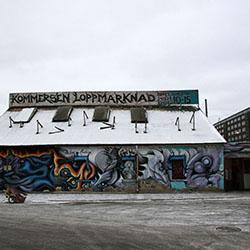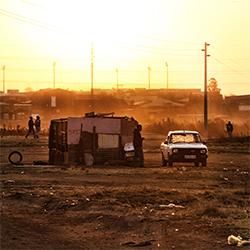
Funktek - Co-creative Museum Development
Culture should belong to everyone. Therefore it should be available to everyone.
The purpose of the Funktek project was to ensure that everyone can visit and experience museums. Everyone has the right to take part of, and to help create culture. For a lot of people with a so called function variation, many museums are difficult to visit and experience. This was the challenge the project faced.
The project has engaged people with a function variation to examine and analyse the exhibitions at the Goteborg City Museum as well as city walks, from their point of view.
The idea was to collect knowledge and experience from the actual visitors, and in turn create a better museum. The aim was also to find solutions that could work for everyone, not matter who you are, not separate solutions for some. More people should be able to experience and enjoy the museum’s under the same conditions.
The goal was to engage at least 300 people to help evaluate the Goteborg City Museum to determine how accessible it is. This was done by engaging so called Funktek pilots.
Based on the input from the Funktek pilot’s new technological ideas and solutions has been tested in the museum.
Results
The results have been collected in a manual Funktek-in-one-day (download below in Swedish). The projects publications can also be found below.
Read the story of What came next - Making the city accessible for all.
What is a function variation?
We have decided to use the term function variation to describe that people function differently and have different needs. We think it is a better term than “mentally challenged”, “handicapped” or “disabled”. By using the term function variation, we are questioning the norm, or standard, because everyone has their own, varied way of functioning. No two people are exactly alike. The fact is, we just fit more or less into a norm. To us, it’s the museum that has the disability, not the visitors.
The project's main research questions
How can new technologies be at the forefront of making the museum experience and the opportunities for co-creating more democratic? How can we avoid language- or intellectual barriers for people with various function variations? How does this contribute to sustainable urban development and more democratic cities? By utilizing a diverse audience of young people with different function variations, the project has sought to answers these questions. Specifically, the project has explored and implemented new technologies which from an interaction design perspective are adapted for museums.
Read more
Visit the projects website
Visit the projects blog
Events held in Swedish
Urban Lunch-time 24 February 2017
Urban Lunch-time 9 September 2015
FUNKTEK - Hur kan medskapande museiutveckling bidra till mer demokratiska städer? Ett Mistra Urban Futures seminarium.







